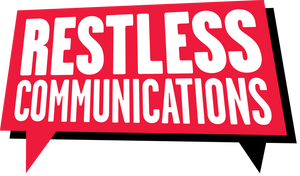My mac alerted me to a new Safari update, today. Nothing too surprising about that. Normally I just wouldn’t care. I don’t use Safari. I use Chrome. But this time I sat up and took notice.
Because this time, that update includes the option to use DuckDuckGo.
Duckduckgo — The search engine that doesn’t track you. A superior search experience with smarter answers, less clutter and real privacy.
Which got me thinking.
Apple really are squaring up against Google. And China.
Both of those take balls of steel. But more of that, they take principles too. Principles of privacy which, at first glance, don’t tally with the pursuit of profit, either.
I don’t want to get too carried away, but we’re at the cusp of an incredibly important time for defining our own individual values, and indeed the values of the world we’re living in, and want our kids to live in.
What is the right balance of privacy v profit in our society?
We all know by now that Tim Cook wrote an open letter about the importance of privacy recently. But it turns out — he really does mean it.
“Our business model is very straightforward: We sell great products. We don’t build a profile based on your email content or web browsing habits to sell to advertisers. We don’t “monetize” the information you store on your iPhone or in iCloud. And we don’t read your email or your messages to get information to market to you. Our software and services are designed to make our devices better. Plain and simple.”
Apple are taking a strong position either to not share, or to not be able to share personal information with third parties including Governments.
Compare that to Google, Facebook, and even Amazon. Where every time you interact with them anywhere (online and increasingly offline) you give them permission to store information about you to help advertisers spend less to get you to buy more in future.
That’s quite some difference in corporate positioning.
In fact it’s fundamental.
Maybe that positioning is how Apple will justify such higher prices for their products and services in future. (Amazon Fire phone for 99cents anyone? Hmmm, I wonder why? Free mobile phone operating system for handset manufacturers anyone? Hmm, I wonder why?), but those principles are also proving costly to them.
Apple still haven’t launched their biggest new product (iPhone6) in the world’s biggest market (China), probably because they can’t/won’t help the Chinese Government decrypt content on IOS8.
The smart money is that China won’t licence them because of that very reason. Yesterday China also blocked duckduckgo.
Some coincidence.
I so want Apple’s privacy statement to kickstart a discussion about how the tech giants (Apple, Google, Amazon and Facebook) can and should use our data.
I’m not anti-Google. And I’m not an Apple apologist either. I let Google sniff my gmail accounts all day long. I’m writing this in Chrome. With hindsight, the iCloud hacks were schoolboy error stuff. Apple should have done better.
But there’s some massive principles at stake here. Principles which, as a society we need to discuss and agree to, rather than sleepwalk into acceptance that Google, Facebook, Amazon etc know way more about us than we’d ever want any Government to know.
And I’d love to know how to make that happen.
(originally published on Medium.com)


